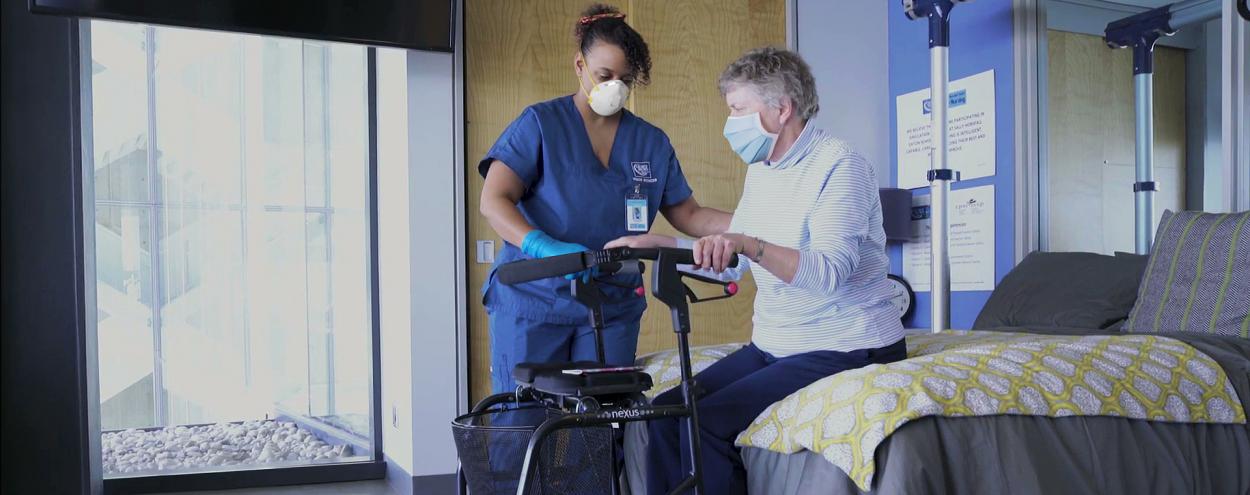
After a challenging two years of the pandemic, identifying signs of burnout among healthcare professionals is more important than ever.
“Ensuring our students gain knowledge and preparation to identify and address signs of burnout as they enter clinical settings and the workforce is an important component of job preparedness,” said Fay Lim-Lambie, Dean of the Centre for Health Sciences and the Centre for Community Services and Early Childhood.
To address this, George Brown College launched a pilot training program at the Centre for Health Sciences to help students identify signs of stress.
The Sally Horsfall Eaton School of Nursing partnered with the U.S.-based Age-U-Cate Training Institute (ATI) to provide online learning modules for students in the Personal Support Worker (PSW) program during the 2022 spring/summer semester. The goal was to have PSW students complete three hours of the Coping with Caregiver Burnout training aimed at improving self-awareness and communication skills.
"We are excited to collaborate with George Brown's PSW program to bring engaging and flexible training that improves the quality of care to elders, persons living with dementia, and chronic illness. Delivering practical, skill-building tools is essential to recruitment, retaining, and building an empowered workforce to serve the explosive aging population,” said Age-U-Cate Founder and CEO Pam Brandon. "Stakeholders across the aging services spectrum must come together to better prepare students, professional and family caregivers. Our work with George Brown is a great example of such partnership.”
Dr. Wendy Ellis, Academic Director, Nursing Degree and Specialty Programs at the Sally Horsfall Eaton School of Nursing said student feedback about the Age-U-Cate modules was very positive.
“This really augments what they're learning in their core courses and helps them think about their own self-care,” Ellis said. “For them to reflect upon their own experiences and prepare to go into clinical placement is so important.”
After completing the module, students were asked to complete a survey about what they’d learned. Student Mary Bell said the Coping with Caregiver Burnout training helped her to manage her time more effectively, “especially when I had to balance work, assignments, clinical placement and my personal life.”
“Had it not been for the information given prior to starting my clinical placement I really don't know how I would have coped with the workload that was ahead of me,” she said.
Student Amy Allan said the module helped her clearly identify the signs of burnout.
"I found this course to be very helpful and moving forward I will always watch for the signs and will speak out if I need help or if I think others need help,” she said. “I have the Coping with Caregivers Burnout Course to thank for this.”
Stay tuned for updates on future Age-U-Cate training initiatives at the Centre for Health Sciences.
